An episode that advocates for social change!
Here’s what’s in store for today’s episode:
Today, Matt and Angela are joined by Halina Brooke, MS, LPC, to discuss autism-affirming social skills.
Halina is an LPC from Arizona whose practice is entirely focused on supporting misfits, oddballs, highly sensitive individuals, and creatives.
We discuss challenges in the clinical autism world, including the discomfort neurotypicals often feel when autistic voices with lived experience challenge their preconceived notions about autism.
We dive into the slippery slope of neurodivergence and labels, exploring how to use labels in a way that feels right for you.
Most social skills groups for autistic individuals focus on "teaching your children to be normal," but Halina's approach is different and stands out by being truly autism-affirming.
Halina's social groups and approach are centered on helping autistic individuals enjoy their environment and experiences, rather than focusing on making neurotypical people feel comfortable.
The goal of Halina's therapy and social group is to help individuals find ways to enjoy whatever context they’re in, while also understanding their nervous system's signals and learning how to cope with them.
We discuss the trauma that can result from ABA therapy for survivors and how this group can offer support and healing for those individuals.
Halina's mission in her therapy practice is to challenge the status quo by creating innovative, non-ABA, neurodiversity-affirming social skills groups specifically for adults over the age of 25.
We also talk about how ChatGPT can assist us as autistics in improving our social skills by helping us assess how our words or mannerisms might be perceived by outsiders or neurotypicals.
Our hosts also dive into the concept of "neurotypical packing peanuts" – the idea of having to "pack" an accomplishment with hardships or details that downplay it, so it doesn’t come across as bragging.
We discuss autism advocacy, highlighting how neurotypicals aren't advocating for themselves, but rather for the preservation of social norms, and the need to challenge an entrenched system.
Matt talks about the concept of code-switching—having to switch between masked and unmasked situations—and the impact that can have on our nervous systems as autistic individuals.
As we know, autistic masking can lead to burnout, exhaustion, and even near-death experiences. Yet, neurotypicals often focus on urging us to stop masking at all costs, without fully understanding the consequences.
We discuss post-diagnosis or discovery grief, the missteps of our parents, and the process of forgiveness.
Finally, we discuss how, as neurodiversity-affirming advocates, we can make the world safer for autistic people. This includes speaking out about the problematic nature of ABA, while also being cautious, as some ABA programs have co-opted neurodiversity-affirming language.
“And that’s the big thing about autism and ADHD, because the DSM doesn’t allow for internal experience. It’s always about how we impact the neurotypicals around us. It’s all about how the doctor can observe you and how irritated the doctor is with your choice of conversation topics or how you don’t make eye contact or how offputting you are to the observer.” - Matt
“You know, the folks who are diagnosed [autistic] and were diagnosed as children, this is the generation that kind of came up with that huge wave of ABA, and when you are constantly told that your way of being is wrong and needs to be fixed, it can leave you with a really ingrained feeling of self-doubt. And so even if you’re doing a situation ‘right’, like if you have a special interest for a certain kind of book and you come to that book club and everyone else is like you in that way, if you went through ABA as a kid, you’re still gonna walk in there with crippling self-doubt wondering if you’re doing it right. But these might be your people.” - Halina
“If you’re very happy and very comfortable being unmasked and then you have to go back into an intensely masked situation, it almost makes it worse because when you’re used to having to mask all the time and that’s just the norm, then you become accustomed to the chains that you wear.” - Matt
“You become acutely aware of the trauma that you’ve had instead of normalizing it and dissociating and just saying, ‘yeah, everyone gets punched in the gut on Thursdays. That’s just how it happens.’” - Matt (on autistic code-switching and cognitive dissonance)
Did you enjoy this episode? We talk about Autistic-affirming social skills, the challenges of masking, post-diagnosis grief, and how we can make the world safer for autistic people. In the comments, let us know what stood out to you, and use #AutisticCultureCatch to share your thoughts on social media and connect with other listeners!
Show Notes:
Halina Brooke, MS, LPC
halina@recoursecounseling.com
My Therapeutic Approach ~ Recourse Counseling
Book your free consultation here.
Call ~ 602.787.0600
Follow us on Instagram
Find us on Apple Podcasts and Spotify
Learn more about Matt at Matt Lowry, LPP
Join Matt’s Autistic Connections Facebook Group
Learn more about Angela at AngelaKingdon.com
Angela’s social media: Twitter and TikTok
Our Autism-affirming merch shop


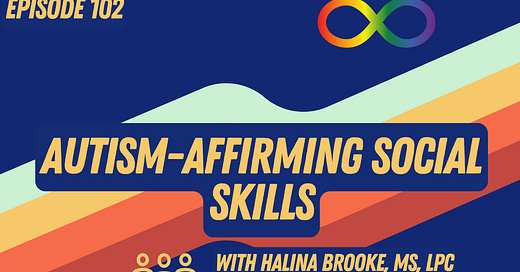
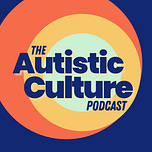





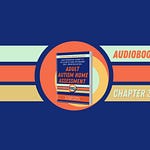



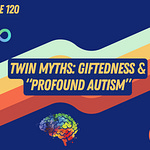
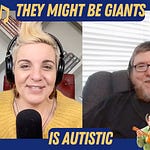
Share this post